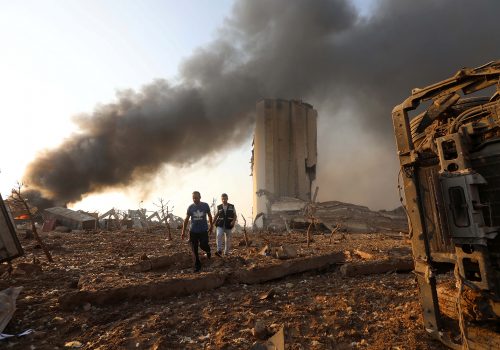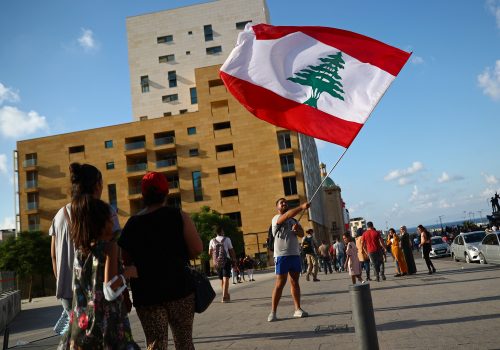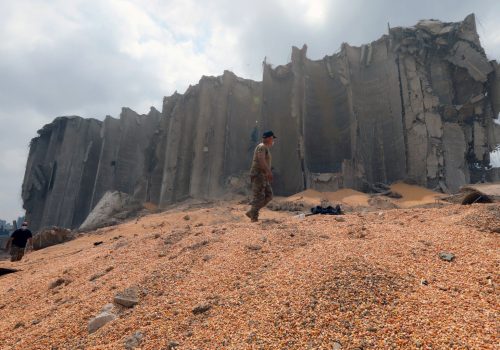Forgotten quarter: Beirut blast survivors in the Karantina neighborhood
Journalists Zahra Hankir and Lynn Chaya spent over ten days reporting from the Karantina quarter in Beirut in the aftermath of the August 4 blast that killed at least 190 people and injured more than 6,500 others. Hankir spoke to dozens of survivors about their experiences before, during, and after one of the biggest non-nuclear explosions in global history—caused by 2,750 tons of ammonium nitrate stored at the Beirut Port. She documented their experiences by curating raw, unfiltered oral testimonies.
Karantina’s history is closely intertwined with the Beirut Port: its name is rooted in its history as a quarter in which sea travelers were quarantined to curb the spread of diseases including cholera and tuberculosis during the 1800s. The neighborhood is also home to multiple tragedies, including a massacre during the Lebanese civil war in 1976, floods, fires, and more. It was largely used as an industrial hub before growing into the sprawling residential area that it is today. Presently, the neighborhood is one of Lebanon’s poorest and is predominantly home to working-class Lebanese, Syrian, and Palestinian refugees, among other migrant workers and displaced groups. The residents of the area say that they feel neglected and that they have received less aid from non-governmental agencies than others. Here are six stories of seven survivors. Together, their accounts underscore the struggles of some of Beirut’s poorest and oft-forgotten residents.
Elie Halabi
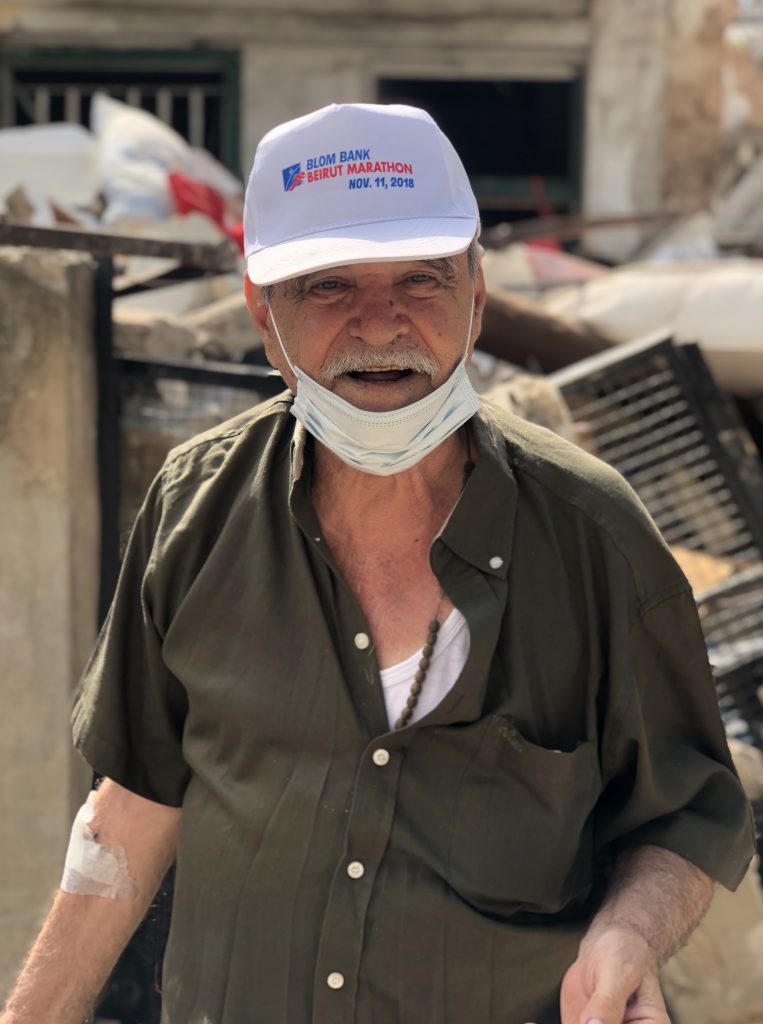
Elie Halabi, an elderly man, has lived in the Medawar area near Karantina his entire life, lost his sister-in-law Claudette and his home in the blast. Several others who resided in the three-story building also died in the explosion, including three members of a Syrian refugee family.
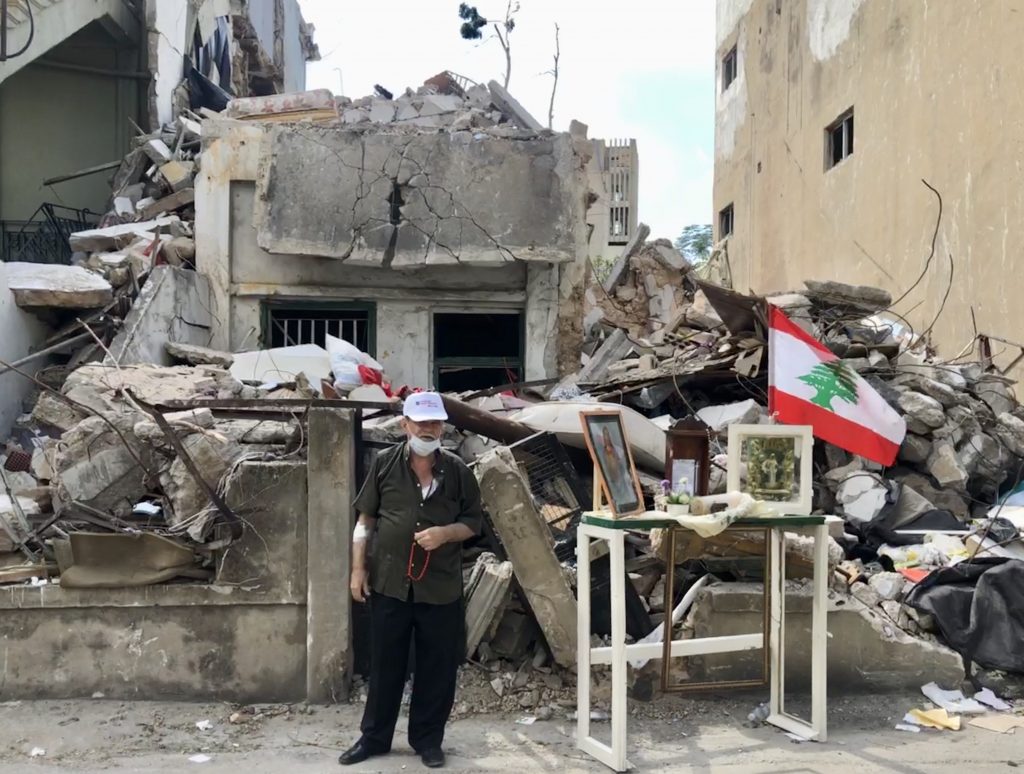
“My home was this pile of rubble you see here. I was born here. I lived here all my life,” Halabi said. “Looking at this house now and looking at you, I feel like I’m in a film. I remember how Claudette kept calling my name. It haunts me. I feel strange, knowing that I survived. I feel like I’m in a dream. What happened to me, everything that happened to me, everything that fell on me. For me to be able to leave the building, to survive, and to be able to walk on my own two feet? I really cannot believe it.”
“This house is my family’s property. A wealthy businessman visited a few days ago and asked if he could buy my portion of the property for $142,000. I would never sell it! I had four big rooms in my home. I had everything I needed. I was clean, I was tidy. Please permit my saying this, but I lived like a king!”
“This memorial here is for Claudette. God bless Claudette, and may she rest in peace.”
(When Hankir first met Elie, he was homeless. Since her reporting, Elie has been offered financial assistance and is currently temporarily residing in a hotel.)
Samuel Audi, 22
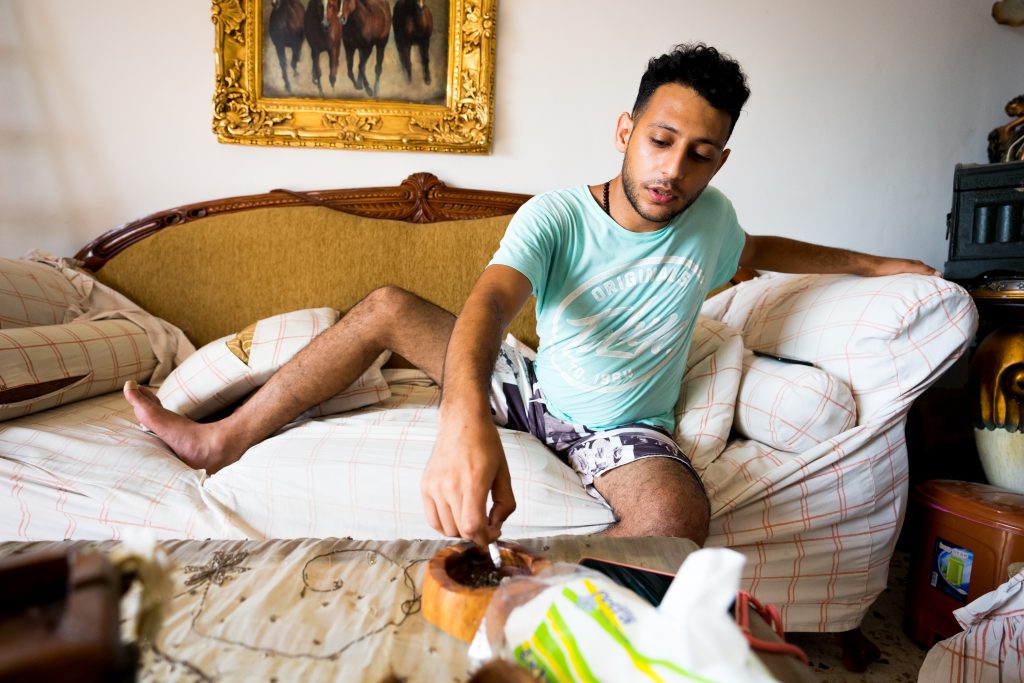
Samuel “Samo” Audi, 22, is unemployed. The blast left his mother in a coma. She has since regained some of her consciousness. His 14-year-old sister was severely injured and the family’s Karantina home was wrecked. Samo spoke of losing his father two years ago and of his struggles as a young Lebanese man seeking unemployment in a battered economy. He also spoke of his mental state—he insists he feels nothing, despite the tragedies he’s experienced.
“When I think of the future, I see nothing. Nothing at all. All we have here is despair, dread, hate, and war. If I pretended I could build a future here, in the country, I’d be lying to myself,” Samo said. “At the same time, I can’t go anywhere. I have no hope in Lebanon. And I’d have to build a life for myself wherever I’d emigrate to.”
“I don’t have any psychological problems at all. I’m sleeping well at night. This is just my personality. I feel nothing. When I think of Lebanon, though, I will say this: the country has ruined us. It has destroyed our lives.”
Pascale Safadi, 34
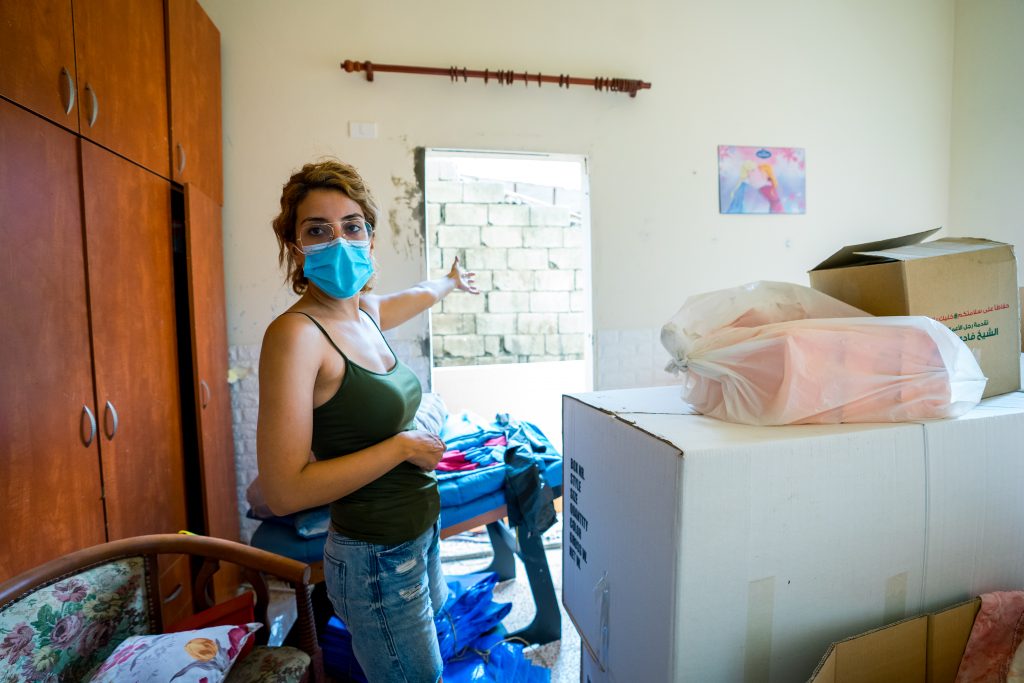
Pascale Safadi, 34, was at her family home when the blast destroyed it. She was trapped between protecting her injured four-year-old son and trying to reach her injured five-year-old daughter. She reflected on the psychological trauma she and her children have since endured and the rage she feels towards the Lebanese government and its neglect.
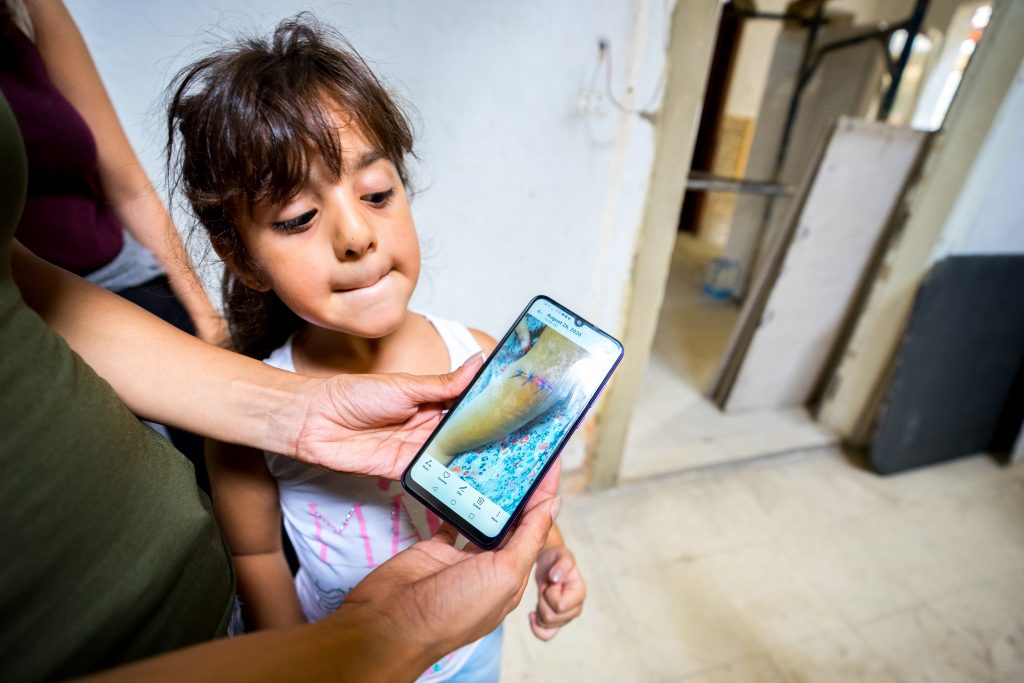
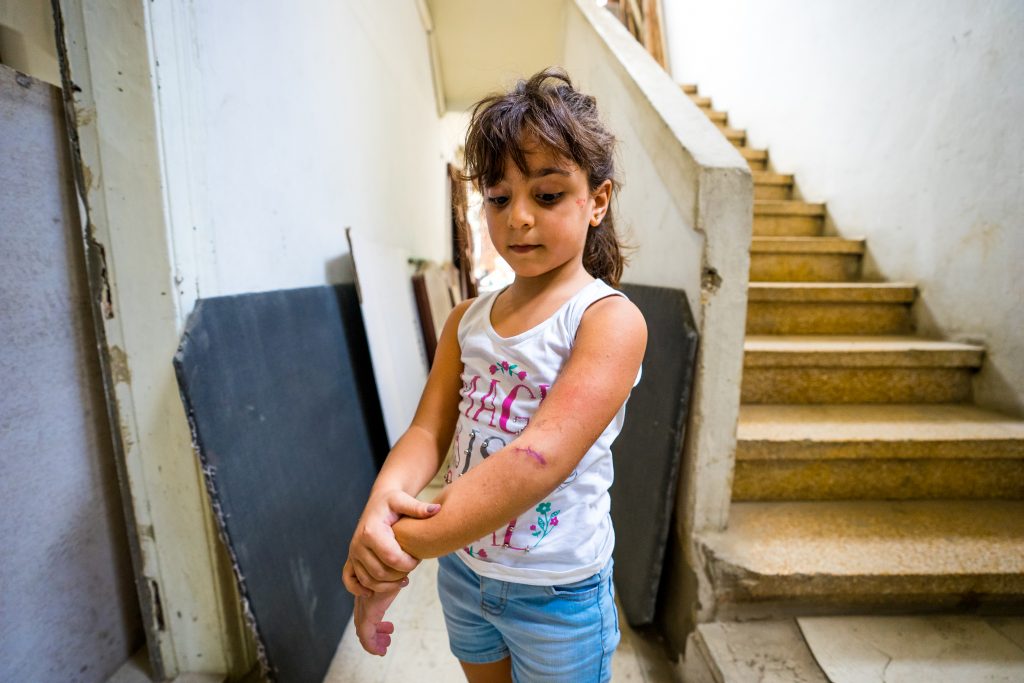
“Listen, I hope that our politicians suffer as we suffered. I’m being very specific here. I mean to say, I hope they hear the sound of their child crying for help and find themselves unable to reach them. That feeling destroyed me. I couldn’t get to my daughter—she was buried under debris—and I was in another room. But she was only steps away from me. I just couldn’t reach her. We couldn’t even hold her tight because she was covered in so much blood and kept slipping from our arms. I hope they feel that terror.”
“I spoke to a psychiatrist about the children. She said, if they talk about what happened that night, let them talk. Let them say what they’re feeling. In truth, the first two days after the explosion, my daughter didn’t want to talk at all. Every time we’d talk to her, she’d say ‘no.’ Then, as soon as it started to get dark, she would start crying and she’d say, ‘Mama, why did this happen to us?’ I’d tell her it happened to everyone, not just us. And then she’d say, ‘But why did they destroy our home?’ I’d say, ‘All the homes of Beirut were destroyed, habibti, not just ours.’”
Mariam Abdel Sater, 64, and Desiree Darouni, 30
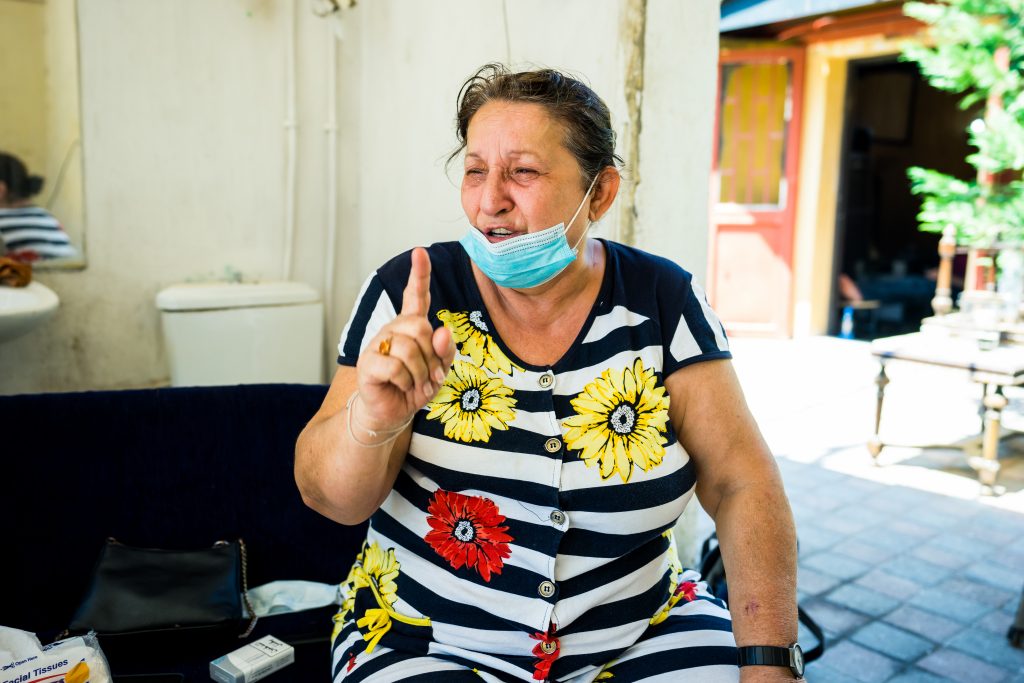
Mariam Abdel Sater, 64, lost her Karantina home and was severely injured in the blast. She says the experience broke her. Mariam survived the Lebanese civil war, poverty, and breast cancer. But she says she has never experienced the sort of anguish she’s endured both during and after the explosion. Desiree, who saved her mother’s life, reflects on her own experiences as a daughter who is deeply concerned about her mother and their future as a family. Desiree is the family’s sole breadwinner, and she earns just 950,000 lira ($120 on the black market) per month.
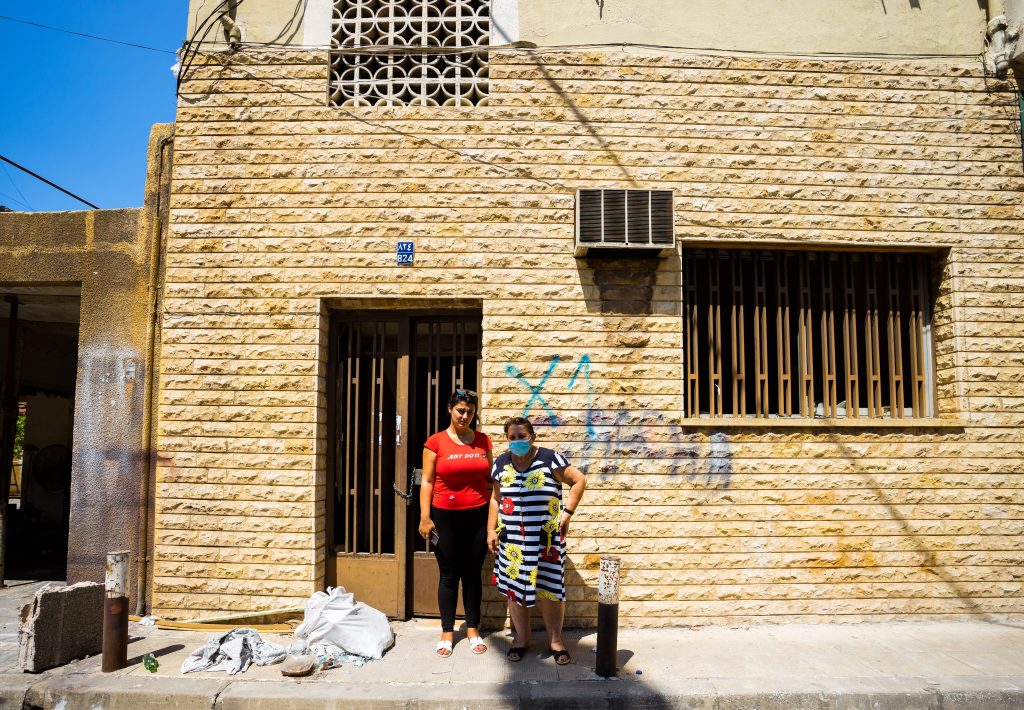
“Even if they give us a house—a furnished house—and even if they provide us with money, I won’t ever be happy again. This kind of shock never leaves you. It will never leave us,” Mariam says. “I’m not sleeping. Every time I remember what happened that day, my entire body shakes. I feel startled, like it’s happening to me again. I’m broken—the explosion broke me. I know it’s not just me. The explosion has impacted the entire neighborhood. Mostly, my heart hurts for the mothers who lost their children. May God give those mothers and fathers patience.”
“My mother has been through so much. I’m young, and I can handle this,” Desiree, who insists she is committed to staying in Lebanon, reflects: “But my mum, she has been through too much. Too much for one person to handle. Since the explosion, she hasn’t been the same. But I keep telling her: no one can lift us from this pain but us. We need to help ourselves.”
Musa Muhammad Naasan, 24
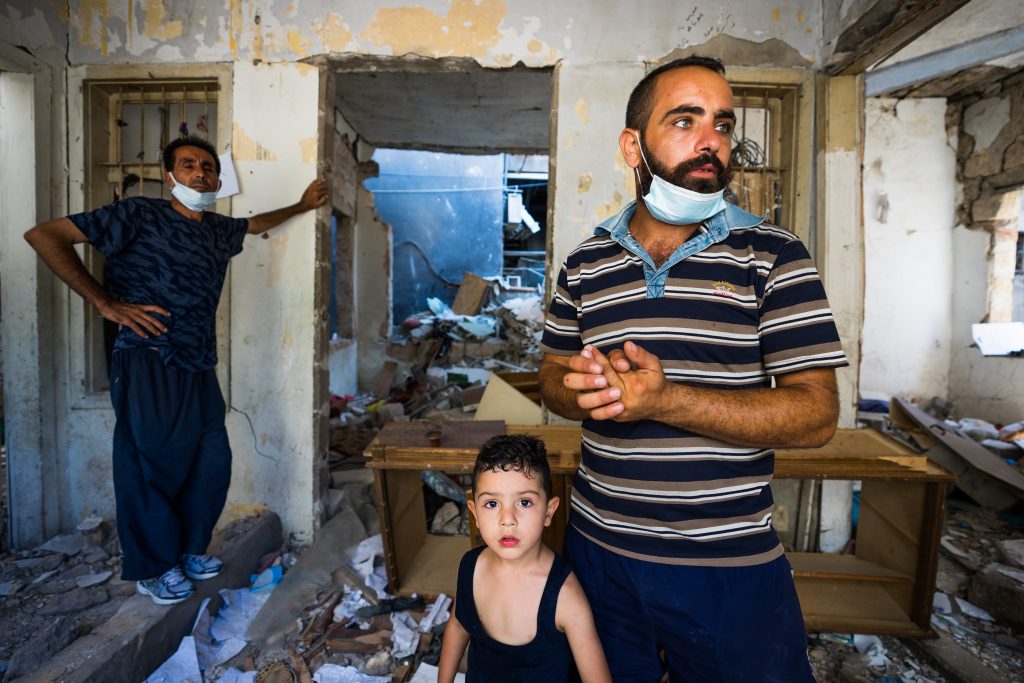
Musa, a 24-year-old port worker, lost his Karantina home and his livelihood in the blast. His home was eviscerated and his family narrowly averted death. Some of his friends who worked with him at the port are still missing. While his pregnant wife and children survived, Musa said his family was suffering unimaginably and that they were being ignored because they’re Syrian refugees.
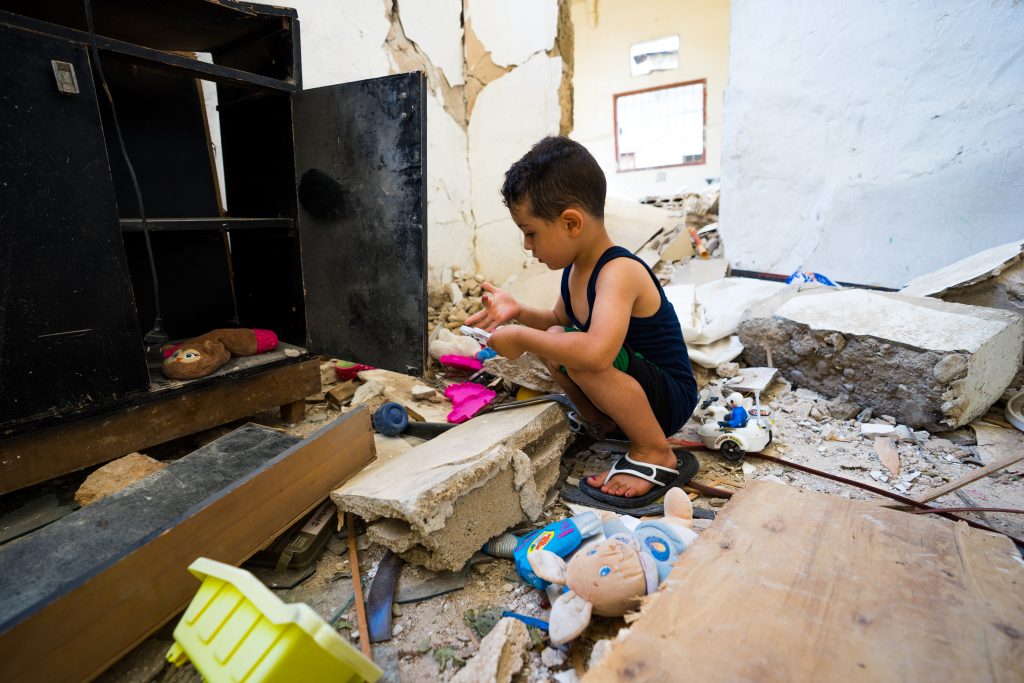
“I’m totally shocked by what happened. Some friends at the port are still missing. No one is helping men,” he said. “I’m sleeping with my family on the mattresses outside. We have nowhere to go. Look at this. The entire kitchen and all the rooms have been destroyed. Everything is dust. We don’t have any choices. We don’t have anywhere to go.”
“Let me be honest. I’ll say this because of what I’ve experienced. What I’m going through now, it makes me feel like I’m not even human, the way we’re being treated because we’re Syrian. This explosion, this racism, I hate it all. Let me speak the truth: our lives here are worthless.”
(Since Hankir’s reporting, generous donors have come forward and have secured a new home for the Naasan family, along with furniture, appliances and cash.)
Zahra Hankir is a Lebanese journalist and the editor of Our Women on the Ground: Essays by Arab Women Reporting from the Arab World, a best-selling, award-winning anthology published by Penguin Books. Follow her on Twitter: @zahrahankir.
Lynn Chaya is a Lebanese-Canadian photojournalist and activist based in Beirut. Her work focuses primarily on humanitarian and political issues. Follow her on Twitter: @lynnkchaya.
DISCLAIMER: All photos excluding those of Elie Halabi are by Lynn Chaya.
Further reading
Sign up for all the latest updates!
Sign up for the MENASource newsletter, highlighting pieces that follow democratic transitions and economic changes throughout the region.
